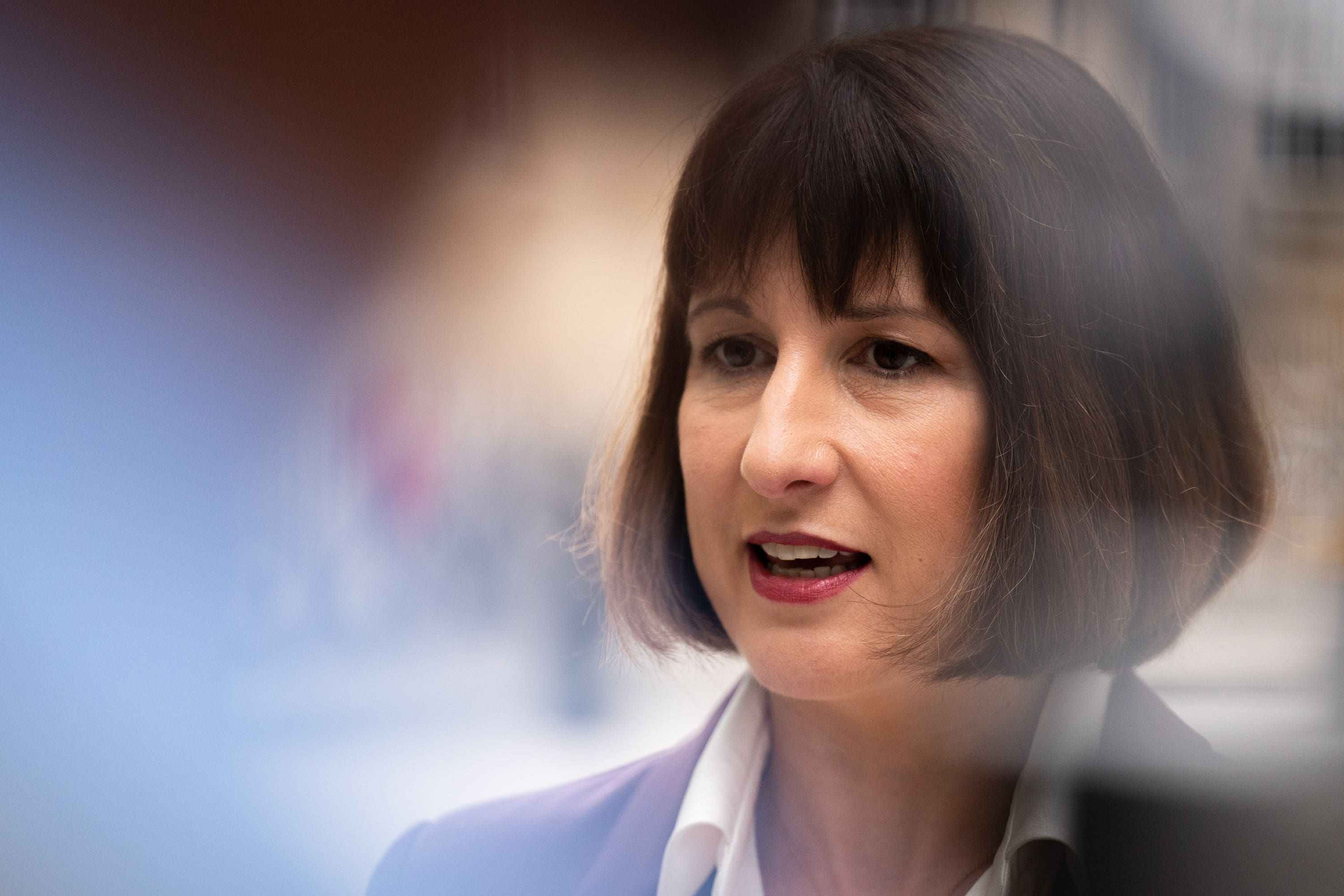Labour vows OBR will not be ‘gagged’ to avoid another Truss mini-budget
Sir Keir Starmer wants to give the official fiscal watchdog the power to publish forecasts independently.

Your support helps us to tell the story
From reproductive rights to climate change to Big Tech, The Independent is on the ground when the story is developing. Whether it's investigating the financials of Elon Musk's pro-Trump PAC or producing our latest documentary, 'The A Word', which shines a light on the American women fighting for reproductive rights, we know how important it is to parse out the facts from the messaging.
At such a critical moment in US history, we need reporters on the ground. Your donation allows us to keep sending journalists to speak to both sides of the story.
The Independent is trusted by Americans across the entire political spectrum. And unlike many other quality news outlets, we choose not to lock Americans out of our reporting and analysis with paywalls. We believe quality journalism should be available to everyone, paid for by those who can afford it.
Your support makes all the difference.A Labour government would ensure the budget watchdog is not “gagged” by ministers seeking to avoid an official financial forecast on major tax and spending changes, shadow chancellor Rachel Reeves has said.
Ministers would be legally bound to consult the Office for Budget Responsibility (OBR) under the party’s plans to prevent a recurrence of Liz Truss’s ill-fated mini-budget.
Ms Reeves told BBC Radio 4’s Today programme on Friday: “I’m saying that we won’t allow that to happen again because the OBR will not be gagged.
To have a budget in the autumn rather than just a few days or weeks before the new financial year gives businesses, gives families, a chance to plan for any changes in taxation
“We will bring forward this charter in legislation, and MPs will vote on it and then we will ensure that, in the future, when budgets happen there will always be a forecast.”
Labour leader Sir Keir Starmer vowed to introduce legislation to ensure that the watchdog has the power to independently publish its own impact assessment.
He and his shadow chancellor announced the plan, if they win a general election, ahead of the first anniversary of Ms Truss and her chancellor Kwasi Kwarteng’s £45 billion spree of unfunded tax cuts.
One of the reasons the markets were so spooked by their mini-budget was that they refused to publish the OBR’s independent forecasts for the public finances alongside the plans.
Labour promised to amend the rules so the OBR would be able to independently publish the impact of any major fiscal event making permanent tax and spending changes.
The party said that ministers would be forced to open their books to the forecasters, though any government wanting to disregard them could seek to reverse the legislation.
Labour also said it would set out a fixed timetable for annual autumn budgets, followed by a spring update in early March, to give families and businesses time to prepare for changes ahead of the new tax year.
Major tax and spending decisions would be reserved for November under the plans, while only minor policy changes would be allowed in a spring update.
Ms Reeves defended the proposal, rejecting the assertion that it would make it harder for chancellors to respond to unpredictable events.
“This is good international practice, that you set a date for the budget and you stick with it.
“And to have a budget in the autumn rather than just a few days or weeks before the new financial year gives businesses, gives families, a chance to plan for any changes in taxation, for example, so that’s good international practice.”
Boris Johnson also considered not going to the OBR before the first budget of his premiership, but this was rejected by his then-chancellor Sajid Javid, according to a book by the Telegraph’s political editor, Ben Riley-Smith.
The Labour plans would allow for changes to be introduced without forecasts in the case of an emergency, but the OBR would be allowed to set a date to publish its work.
Ms Reeves and Sir Keir will face more questions about the plans during a visit to the London Stock Exchange on Friday.
It comes at the end of a week in which Prime Minister Rishi Sunak weakened a host of green policies, including delaying the ban on the sale of new petrol and diesel cars to 2035.
The move was criticised by car industry figures who wanted certainty on the shift to electric cars.
Ms Reeves denied Labour was “anti-motorist” because of its commitment to reinstate the 2030 deadline.
She said motorists who want an internal combustion engine beyond 2030 would still be able to buy second-hand.
It beggars belief that Labour think Britain’s problems will be solved by bigger government and even more powers for quangos
“We’re certainly not anti-motorists. The price of electric vehicles is coming down all the time.
“But over the last 24-48 hours, I’ve had so many messages from business leaders saying ‘all we want is a bit of stability and consistency and frankly some ambition from this Government’.
“We want businesses to invest in the UK, in the industries of the future from electric vehicles to carbon capture to green steel.
“And they’ll only do that if we’ve got a government that is committed to these goals and these targets.”
In response to Labour’s plans to give the OBR more power, former prime minister Ms Truss said: “It beggars belief that Labour think Britain’s problems will be solved by bigger government and even more powers for quangos.
“Hard-working people and businesses – freed from overbearing regulation, tax, and debt – are going to get Britain growing again, not more bureaucrats in London.”